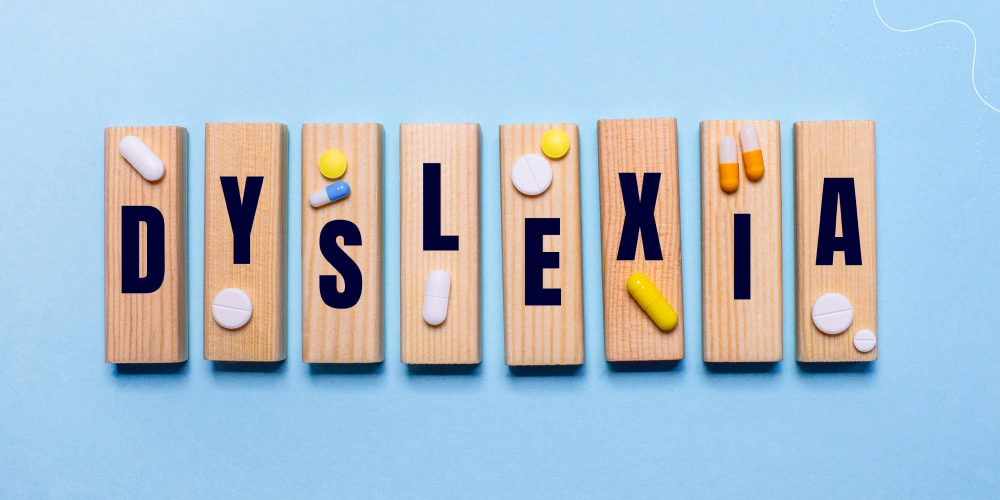Dyslexia is one of the most common learning disabilities impacting reading, writing, and spelling skills. A comprehensive evaluation based on reading, writing, and spelling skills will help to exclude these conditions and confirm a diagnosis of dyslexia. The goal of the evaluation is to identify strengths and weaknesses to create a plan for accommodations or interventions to help an individual manage their disorder.
It cannot be cured but can be managed with the right treatment plan. The treatment options include tutoring, accommodations in school, and dyslexia therapy. It is estimated that it affects 5-17% of the population, a relatively common condition. This condition occurs in individuals who have normal intelligence and normal vision. With the proper support, people with dyslexia can succeed in their education and careers. This blog post will provide an overview of dyslexia, including its diagnosis and treatment options.
How is Dyslexia Diagnosed
The diagnosis is based on a combination of factors. This evaluation includes testing for reading, writing, spelling skills, and processing speed. It can also assess IQ, achievement, and cognitive abilities. In some cases, neuropsychological testing may be used to evaluate brain function. A diagnosis of dyslexia is usually made after considering all of this information. Although there is no cure for this disorder, early identification and intervention can help lessen its impact.
Reading Evaluation
The testing process may involve having the person read a text aloud, answer questions about what they have read, or complete other tasks that require reading skills. In addition to assessing reading skills, the evaluation may include testing for other conditions impacting reading ability, such as attention deficit hyperactivity disorder or auditory processing disorder.
Writing Evaluation
It can include phonemic, phonology, vocabulary, and grammar assessments. Testing for dyslexia may also evaluate fluency, speed of processing, and memory. A comprehensive evaluation will combine testing with a review of the individual’s medical and educational history.
Spelling Evaluation
A diagnosis requires that a person demonstrate consistent spelling difficulty despite receiving adequate instruction and support. The person’s age, educational history, and other factors will also be considered.
Processing Speed Evaluation
Many people with dyslexia have difficulty processing information quickly. It can impact reading speed and the ability to make quick decisions. This dyslexia evaluation can involve testing of reading, writing, or math skills. In some cases, an assessment of reaction time may also be included. This assessment can also track a person’s progress over time.
When Should you Visit a Doctor?
Individual experiences dyslexia differently and may have a wide range of symptoms. Common signs that someone may have dyslexia include difficulty with phonemic awareness, phonology, word decoding skills, etc. However, it may be worth talking to a doctor if you struggle with:
- reading;
- writing;
- or other language-based tasks.
It can severely affect all elements of a person’s life if it is not treated. One of the significant risks is that people are significantly more likely to experience academic failure. People can experience mental health issues in addition to educational challenges. As people with this illness may find it difficult to make and keep friends, it can also result in social isolation. Finally, it can also cause issues at work.
Dyslexia Treatment
Specific dyslexia treatment is tailored to the individual’s needs. However, some general tips include:
- Conducting dyslexia therapy, which helps to improve reading skills through phonemic awareness training and practice with letter-sound relationships;
- Providing a structured and supportive learning environment;
- Breaking down tasks into smaller, more manageable parts;
- Encouraging the use of visual aids and other tools to help with learning.
Treatment for dyslexia can also consist of specialized instructions, accommodations, and assistive technology. Specialized instruction focuses on teaching reading and writing skills in a way that matches a person’s learning style. Accommodations are changes that can be made to how instructions are given or tasks are completed. Assistive technology is a tool that can help people with this disorder to overcome some of their difficulties. Common examples of assistive technology include text-to-speech software and spell checkers.
It is important to note that dyslexia treatment should be started as early as possible for best results. With early diagnosis and interventions, people can learn to read and spell at age-appropriate levels.
How to Prevent the Development of Dyslexia
The earlier dyslexia is identified, the sooner treatment can begin, and the better the chances are for success. There are also some educational programs, testing, and technologies that can help people with dyslexia. They include:
- specialized teaching methods;
- computer programs;
- and books that use a different kind of font that is easier to read.
People can also benefit from accommodations and modifications in their daily lives. For example, they may need extra time to complete tasks or be allowed to use a computer instead of paper and pencil.
Research suggests that early diagnosis and reading instruction can make a big difference for children at risk for dyslexia. Additionally, ensuring your child gets plenty of opportunities to read and write from a young age can help reduce the risk.
Book an Appointment at Lone Star Neurology Doctors
While dyslexia can occur in people of all ages, it is most commonly diagnosed in childhood. If you suspect your child has this disorder, it is necessary to visit a doctor or other healthcare provider for an evaluation. Early diagnosis and treatment are essential for helping people reach their full potential.
Based on the evaluation results, our Lone Star Neurology specialists can help create a treatment plan that works for you. With early diagnosis and treatment, people with dyslexia can lead successful and fulfilling lives.
FAQs
- Who gets dyslexia?
Dyslexia can affect people of any age, race, or socioeconomic background. While it can occur in anyone, it is more likely to develop in people with a family history. Additionally, boys are more likely to be diagnosed with this illness than girls.
- What is the prognosis for dyslexia?
Some people with dyslexia may find that they can overcome their reading and writing difficulties through various accommodations and strategies. In contrast, others may continue to struggle with this condition throughout their lives. The most important thing for people is to get the support and resources they need to manage their symptoms and succeed.
- What is living with dyslexia like?
For some people, it may mean difficulty with reading, writing, and spelling. For others, it may mean problems with specific math skills or organization. Some people may also have trouble with fine motor skills, such as writing or using a computer. While dyslexia can be a challenge, it is often associated with creativity, out-of-the-box thinking, and strong visual memory.
- Is dyslexia treated with medication?
Some people may find that medication can help them to manage their symptoms and improve their ability to read and write. However, if you think medication may be proper for you, speak to your doctor or dyslexia specialist to discuss your options.













Please, leave your review
Write a comment: